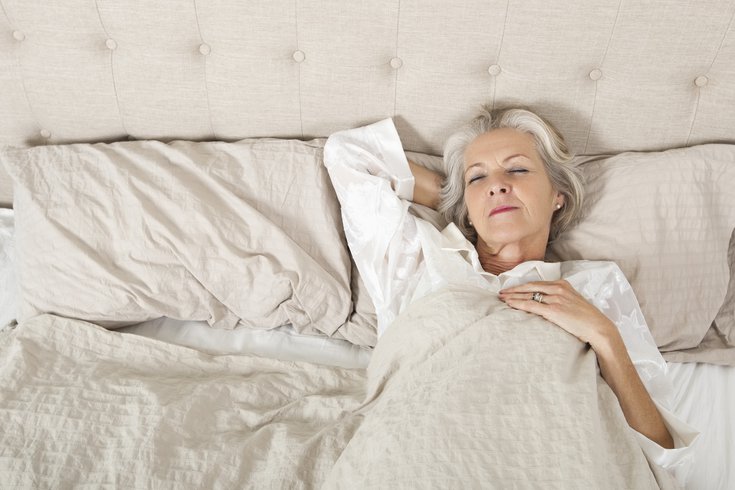
May 04, 2022
 Source/Image licensed from Ingram Image
Source/Image licensed from Ingram Image
Getting seven hours of sleep each night is particularly important for older adults' cognitive performance and mental health, researchers say.
Many older people seemingly need less sleep than they did when they were younger.
But the idea that people need less sleep as they age is a myth, research suggests, even if your parents or grandparents only may be clocking about five hours of sleep a night.
In a new study, scientists calculated the ideal amount of sleep for people over age 40 and the number they came up with was seven hours. That duration was found to be particularly important for cognitive performance and mental health.
"Getting a good night's sleep is important at all stages of life, but particularly as we age," said researcher Barbara Sahakian, of the University of Cambridge in England. "Finding ways to improve sleep for older people could be crucial to helping them maintain good mental health and well-being and avoiding cognitive decline, particularly for patients with psychiatric disorders and dementias."
The study, published Nature Aging, analyzed the sleep patterns and mental health and well-being of almost 500,000 adults ages 38-73 from the United Kingdom. All the participants completed a series of cognitive function tests. Brain imaging and generic data also were used in the calculations.
The study participants who got more or less than seven hours of sleep performed worse on the tests that measured processing speed, visual attention, memory and problem-solving skills. They also exhibited poorer mental health, including symptoms of anxiety and depression.
In addition, the researchers uncovered a link between the amount of sleep a person gets and differences in the brain structures involved in cognitive processing and memory. The largest changes were observed in people who had more or less than seven hours a sleep a night.
This suggests that too little or too much sleep can be an important risk factor for age-related mental decline, researchers said.
"While we can't say conclusively that too little or too much sleep causes cognitive problems, our analysis looking at individuals over a longer period of time appears to support this idea," said researcher Jianfeng Feng, of Fudan University in China. "But the reasons why older people have poorer sleep appear to be complex, influenced by a combination of our genetic makeup and the structure of our brains."
Previous studies have linked sleep duration to brain health, particularly the risk of developing Alzheimer's disease and dementia as people age.
One study found that sleep disruption is linked to a variety of chronic health problems, but especially in elderly populations. Lack of sleep contributed to the development of neurodegenerative conditions, including Alzheimer's disease and Parkinson's disease.
Sleep also affects a person's capacity for learning and for consolidating memories. It enhances attention, problem-solving and creativity. It affects hormones and the immune system.
People go through five cycles of sleep each night. They include both rapid eye movement stages, when dreaming occurs, and non-REM stages. During REM sleep, there is an increased activity in the brain structures that help regulate memory and emotions. There is less activity in the frontal brain structures involved in analytic thinking.
During REM sleep, people may experience strange dreams that combine fragments of events and memories from the day.
The slow wave sleep stage also is important for learning motor skills.
As a part of the natural aging process, people tend to have both less REM and slow wave sleep, which can make memory consolidation more difficult.
Older people are at higher risk for sleep disorders, including sleep apnea. About 20% of older adults have a sleep apnea disorder and about 5% have an insomnia disorder, according to a study in the journal Sleep Science.
The likelihood of having additional medical issues and taking multiple medications, which can affect sleep, increases as people age, too.
There are both non-pharmacological and pharmacological treatments to improve sleep. Exercise, reducing distractions in the bedroom and developing a bedtime routine can all help, according to the Sleep Foundation.